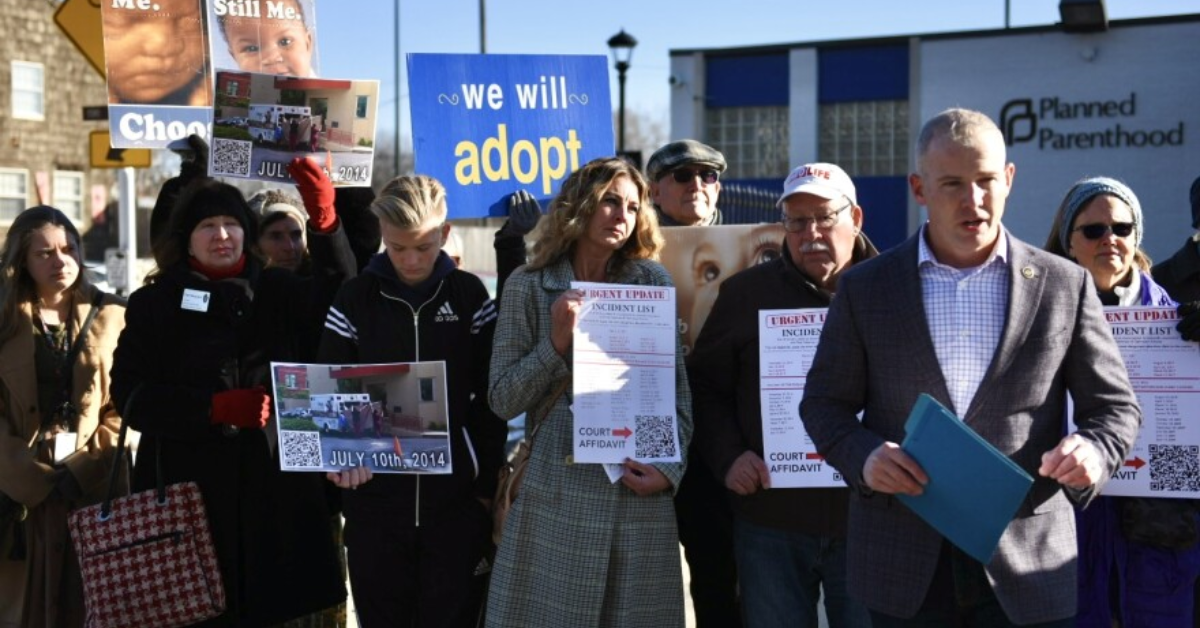A recovery room at the Planned Parenthood Great Plains office is pictured on June 21, 2024, in Overland Park, Kansas (Anna Spoerre/Missouri Independent).
Nearly two months after Missouri voters approved a constitutional amendment to legalize abortion, access to the procedure remains blocked due to existing state regulations.
On Friday, a Jackson County judge heard arguments from Planned Parenthood, which is asking for an injunction that would allow its clinics to start offering abortion services immediately.
Last month, Judge Jerri Zhang struck down multiple regulations known as “targeted regulation of abortion provider” statutes, or TRAP laws. These included a 72-hour waiting period before an abortion and a requirement for doctors performing abortions to have admitting privileges at nearby hospitals.
However, other restrictions remain in place, including a state licensing requirement and a mandate for a pelvic exam before prescribing abortion medication. These rules have prevented clinics from resuming abortion services in Missouri.
On Friday, Zhang listened to arguments from both Planned Parenthood and the Missouri Attorney General’s Office in a downtown Kansas City courtroom. Planned Parenthood attorney Eleanor Spottswood argued that abortion access in Missouri has not yet been restored.
She also stated that if the judge strikes down the remaining restrictions, Planned Parenthood plans to start offering medication abortions at all nine of its clinics within a week. The organization also hopes to hire and train staff to resume surgical abortions at its St. Louis and Kansas City locations.
Judge Zhang questioned how Planned Parenthood clinics would be regulated if she removed the state’s licensing requirement. Spottswood explained that, like other outpatient facilities, Planned Parenthood would not need a separate state license but would still be subject to professional licensing standards through the Missouri Board of Healing Arts. She argued that Planned Parenthood is currently subject to a much stricter set of regulations than other healthcare providers.

The Missouri Attorney General’s Office had previously asked the court to dismiss the case, claiming that because abortion remains available through mail-order pills or out-of-state providers, Planned Parenthood lacks standing to challenge the regulations.
A major focus of Friday’s hearing was the state’s requirement for a pelvic exam before prescribing abortion medication. Planned Parenthood attorneys called this requirement “invasive and unnecessary,” arguing that there are other methods to determine if a pregnancy is ectopic. Taking abortion medication in the case of an ectopic pregnancy can be dangerous, but Spottswood said clinics use alternative screenings to detect such risks.
Missouri Solicitor General Joshua Divine defended the pelvic exam requirement, arguing that such exams are considered routine care for medical procedures. Zhang asked whether hospitals in Missouri could now legally provide abortions under the new amendment and if the pelvic exam requirement also applied to them.

Spottswood responded that hospitals presumably could offer abortions, but it remains unclear if any will do so. Divine acknowledged that while hospitals may legally be allowed to provide abortions, it is “very, very rare” that they do, making regulation largely unnecessary.
Without an injunction blocking these restrictions, Spottswood argued that Missouri would continue to enforce laws in a way that makes access to abortion as difficult as possible. She stated that the current regulations discriminate against abortion providers and interfere with patients’ rights, violating Amendment 3.
The amendment states that “the right to reproductive freedom shall not be denied, interfered with, delayed, or otherwise restricted unless the government demonstrates that such action is justifiable by a compelling governmental interest achieved by the least restrictive means.”
Missouri’s abortion laws have been highly restrictive since the U.S. Supreme Court overturned Roe v. Wade in 2022. That same day, Missouri’s trigger law went into effect, banning almost all abortions except in cases of medical emergencies. The last remaining abortion provider in the state, Planned Parenthood’s St. Louis clinic, had to stop offering the procedure.
Spottswood argued that limiting abortion access to a single clinic would interfere with patient choice and that the licensing law unnecessarily inserts the state between the patient and their provider.
The hearing also addressed objections from state prosecutors regarding their involvement in the case. The Missouri Attorney General’s Office argued that Jackson County Prosecutor Melesa Johnson, who replaced Jean Peters Baker, should not represent all county prosecutors in this lawsuit. Several county prosecutors from Wright, Texas, Franklin, and Saline counties attended the hearing, arguing that because their counties do not have Planned Parenthood clinics, they should not be included in the case.
Judge Zhang raised concerns about the possibility that residents from any county could obtain abortion medication from a clinic and later return home. She pointed out that three of the four counties objecting to the case have hospitals where patients could seek care if they experience complications after an abortion. She also noted that telemedicine could create legal conflicts over jurisdiction.
No specific prosecution scenarios were discussed, but Wright County Prosecutor John Tyrrell said he was unsure if he would pursue abortion-related cases. “I won’t swear I won’t and I won’t swear I will prosecute,” he told the judge, adding that the likelihood of prosecution was “very, very low.”
Judge Zhang gave both sides one week to submit additional legal arguments. A decision is expected after that. The case is scheduled for a full trial in January 2026.
Disclaimer: This article has been meticulously fact-checked by our team to ensure accuracy and uphold transparency. We strive to deliver trustworthy and dependable content to our readers.

